
Let’s cut to the chase:
If you want to nurture leads and turn them into raving fans who will shout your virtues from rooftops (as well as buy whatever you’re selling), you need to learn the ins and outs of email marketing.
In this simple, easy-to-digest guide, you’ll learn:
- The two things you need to get started with email marketing;
- How to choose the best email marketing service for your needs;
- How to grow your email list;
- What kind of emails you should send to your subscribers;
- Why (and how) you need to segment your email list;
- How to improve your email open rates;
- How to automate your emails (with examples);
- And more…
When we’re done, you’ll have all the info you need become an email marketing kung-fu master.
Let’s dive in.
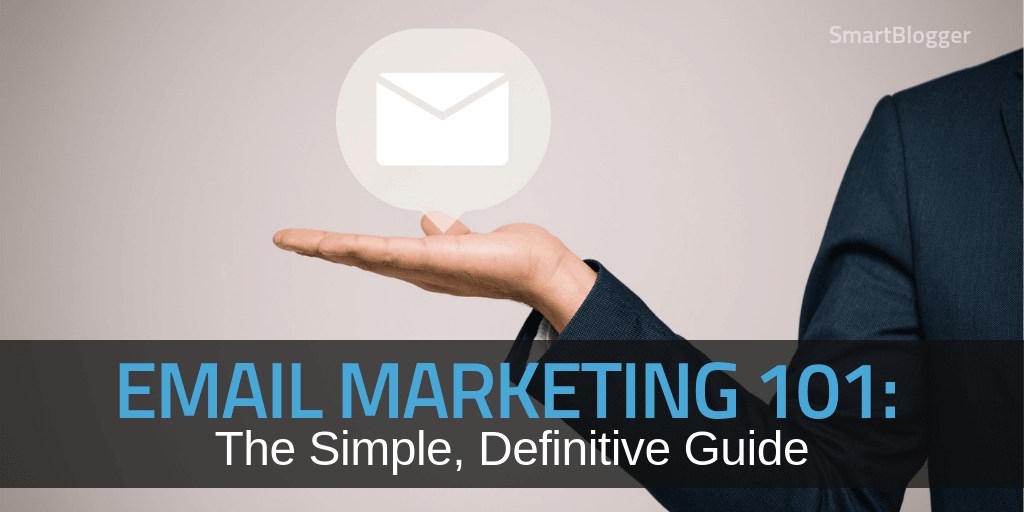
A guide this detailed needs easy-to-follow navigation, so we’ve broken everything down into different sections.
Click a link to jump to that section:
Up first, a quick definition:
What is Email Marketing?
Email marketing is a type of digital marketing strategy where emails are sent to nurture leads and convert them into customers. Email marketing forms a level of familiarity and trust with your subscribers through a series of automated emails, segmenting, tagging, and funnels.
You begin by creating a system that converts readers of your website into email subscribers. Typically, this system involves an incentive of some kind.
These incentives are known by many names…
- lead magnet
- optin bribe
- free offer
- free gift
- content upgrade
…but whatever you call it, its mission is simple:
Convince readers to provide their email in exchange for the incentive.
The reader gives you his or her email, you give them your free bonus. Wash, rinse, and repeat.
With your email service provider and lead magnet, you can create a series of automated emails like a welcome series, newsletter, or a promotional campaign. These emails act as a brand builder to nurture subscribers and help them get to know your brand, message, and products.
The Benefits of Email Marketing
When you compare email marketing campaigns to social media, there’s really no contest:
- 59% of people spend most of their time checking their emails on mobile devices;
- Up to 77% of us prefer marketing emails over social media scrolling;
- A strong email marketing strategy is up to 40 times more effective in customer acquisition.
Plus, you own your list — you don’t own your social media followers. If Pinterest or Facebook decided to close their doors forever, your social media followers would go too.
Lastly, email marketing is an effective strategy for converting people into customers. It converts 208% higher than sending generic email newsletters to your list.
It’s having this marketing automation strategy with segmenting, funnels, or onboarding series that helps nurture subscribers and ultimately converts them to your offerings.
No other marketing channel lets you do this.
How to Get Started with Email Marketing
To begin, you will need two things:
- A way to capture email addresses;
- An email marketing service (so you can send emails to your leads).
There are both free and paid options but, to make your choices easier, I’ll go over the most recommended tools so you can pick from the one that better suits your needs.
Capture Email Addresses Using Optin Forms
An optin form is a place on your website that allows you to capture emails.
Embedded optin forms offer the least amount of barriers and are usually the most converting.
Using a tool like Thrive Leads has customizable forms — 2-step, slide in, ribbon, etc. — making it easy to find what your audience likes.
Sumo and OptinMonster are two other lead capture tools that also offer many email signup forms to choose from.
Once you’ve chosen your preferred tool to capture leads, you need to qualify your leads. You can do this by placing your optin forms in several optimized places.
Here are a few of our favorites:
1. Header
Having a call to action above the fold is an easy way to present an attention-grabbing signup form and alert new readers to what you’re offering.
Ramit Sethi’s header is simple enough — a welcoming headshot of Ramit in front of a white background.
It’s attention-grabbing because there are no other distractions.
2. Within the Post
An excellent way to list build is by providing a free offer that is relatable to the blog post someone is reading. This is called a content upgrade and it can convert up to 28% more effectively than other places on your website.
Content upgrades can be additions to a certain blog post, a summarized version like a checklist or a more comprehensive walkthrough of the blog post topic.
Smart Blogger uses a content upgrade in their popular post about how to make money blogging. It’s a free workshop that gives more actionable advice to help new bloggers be successful.
3. Dedicated Landing Page
Creating a landing page for your offers can help your conversion rates by as much as 43%.
This is a must for list building. By having a dedicated landing page for your optins, you can promote that page all over social media and even to your list.
Sarah Titus uses landing pages for many of her incentives. One of her most converting offers is a household binder.
4. Pop-ups
Pop-ups are signup forms that unexpectedly appear, or “pop up,” while a user is on your website. You may think pop-ups are annoying but they do a darn good job at converting more so than traditional forms.
The trick to making them work is to have tasteful popups rather than pushy ones. You can do that by using the best pop-up placement practices.
5. Sidebar
Bloggers would think placing an optin form on a blog’s sidebar would scream amateur, but here’s the thing…
Your readers are expecting to see a signup form on your sidebar.
And if your readers aren’t bloggers and just regular people — like your aunt searching on Google for a chicken vegetable ramen noodle recipe — most likely they will see your blog with a sidebar optin form and sign up to your offer.
Free recipes — Not one, but THREE eBooks?! Yep!! Signed up, got them and will be using them!
6. About Page
With your About page being one of the most read pages on your site, it’s no wonder that having an optin form is a given.
Jenn and Sam of This Tiny Blue House use a general optin incentive but make the signup form pop by using their brand colors.
Choose an Email Marketing Service
To take advantage of email marketing strategies like segmentation, automated emails, tracking click-through rates, and open rates; you need a comprehensive email service provider.
There are lots of well-known email marketing services (Mailchimp, Constant Contact, GetResponse, Sendinblue, HubSpot, ActiveCampaign, Infusionsoft by Keap), but we’re going to focus on only a few.
Here are four excellent email marketing services you can get started using today.
1. MailerLite
MailerLite has always been an affordable email service provider and they are one of the few quality providers with a free tier.
And “free” gets you a lot with MailerLite, which features a wide variety of graphical templates and a drag-and-drop email designer. They feature automations, tags, segmentation, landing pages, beautiful popups, and more.
2. ConvertKit
ConvertKit is one of the newest email service providers on this list, but they have a large following among bloggers and creators — and they’re growing their market share rapidly.
Bloggers and creators enjoy using Convertkit because it makes email marketing automation easy to use without over-complicating things.
You’ll find all the usual features like tagging, segmentation, a visual automation builder, impressive deliverability, and strong integration with most of the popular internet marketing tools.
3. AWeber
AWeber has been around for over two decades, making them one of the first easy-to-use email marketing services out there (along with Constant Contact and GetResponse) for small businesses and entrepreneurs.
Their original, simple autoresponder functionality has given way to automations, powerful analytics, drag-and-drop email creation and more features that make it easy for beginners to set up campaigns.
4. Drip
Drip’s original target market was SaaS product owners, but they began to build a following with bloggers, creators, and e-commerce store owners.
They have the most complete feature sets including tags, segments, and a visual builder.
Drip also has unique offerings like Facebook Custom Audience Integration and extensive Liquid templating integration for creating advanced automations and emails unique to each subscriber.
Tip: Check Email Deliverability
One factor to consider when choosing the best email marketing service for you is email deliverability.
Not all email providers are created equal.
To ensure your subscribers are receiving your wonderful, effective emails, they need to hit the inbox — not the spam folder or Gmail’s dreaded Promotions tab.
EmailToolTester tested the inbox placement rates of several newsletter services and found that 80% of providers have their emails land in the inbox.
Check to see if you pass the spam test and land in inboxes with Mail Tester.
How to Grow Your Email List
You’ve found your email service provider and lead capture tools.
Now, it’s time to focus on your audience and deliver a top-notch lead magnet to grow your list.
A lead magnet is a free offer — an optin bribe — and it’s usually:
- A quick win — you can achieve success in a short amount of time.
- Solves one problem — a pressing problem or challenge your audience struggles with the most.
- Offers immense value — the information must be actionable, easy to do and provide sooo much value that your audience can’t believe it’s free.
Your free offer should help your reader save time, money, and/or energy.
Just look at how Brennan Dunn of Double Your Freelancing’s lead magnet hits each point.
Here are six popular email incentive ideas you can whip up easily using various free tools:
1. A Cheat Sheet (or Checklist)
While a cheat sheet or checklist seems too simple for people to get excited over, the fact that it IS easy is what makes it one of the best types of optin offers.
And successful bloggers know this.
Pat Flynn of Smart Passive Income has a Podcast Cheat Sheet lead magnet that he’s been using for years.
To get the most out of your cheat sheet, you can monetize it by placing links to your affiliate products or your products inside the cheat sheet.
2. Templates
Templates are a step up from cheat sheets and checklists.
They are more applicable because they can pinpoint a problem and solve it quickly.
Kristin of Applecart Lane has got design-challenged bloggers covered with her free Pinterest templates.
3. Worksheet
If a checklist and template had a baby, they would make a worksheet.
Worksheets allow you to mark off progress from a framework. It’s also highly visual.
The best use of a worksheet is when you can help your audience go from point A to point B.
Mariah Coz created the Course Criteria Worksheet to help her audience figure out the right course idea for them.
4. A Sneak Peak
An easy way to create a little buzz around your products is to offer a sneak peek. From a free lesson to a free course, using a sneak peek as your lead magnet can boost conversions and sales.
James Clear knows this. His lead magnet is a free chapter of his bestselling book, Atomic Habits.
5. Challenge
Empower your audience by challenging them.
Lauren and Alex of Avocadu are killing it with their free motivational 21-day fat loss challenge. It ties in beautifully with their fat loss products.
Creating a challenge can take different forms — from video to email to even using a Facebook group.
But the easiest way to deliver a challenge is via a drip campaign. You can set trigger links to help segment your email list and nurture those into email funnels for your products.
6. Webinar
Webinars provide crazy results. BuzzSumo reported a 20% conversion rate and tax expert Karla Dennis generated $72k profit from using webinars.
Webinars are perceived as more valuable than other forms of freebies because they feel exclusive.
Allison from Wonderlass uses an optimized landing page to promote her free webinar.
Think you can’t possibly host a webinar? Mary Jaksch says otherwise.
The 4 Types of Emails to Send to Your Email List
What types of emails do you send now that you have a list of subscribers?
The email campaigns you set up will form an email nurture sequence that will help develop a relationship with your subscribers, forming a bond of trust and engagement with you.
Let’s look at four types of emails to send to your email list that builds trust and boosts conversions.
1. Welcome Email
One of the best onboarding email campaigns you can have is a welcome email.
Welcome emails usually have the highest open rates — up to 84% — and are the first conversation your subscribers will have with you.
So, you better make it count!
A welcome email is simple enough — you welcome your subscribers to your business, why you’re the best person in your industry, and how you can help them.
Think of your welcome email as getting to know someone for the first time. What do you want them to know about you and what you do?
Your welcome email should also have links to any products you have, social media links you want to promote and, above all, a curiosity loop to nudge your new subscribers to open up your next email.
Something like, “Tomorrow I’ll be sending an email on how I got my strong-willed toddler to listen the very first time. You won’t believe this ridiculously simple parenting hack!”
2. Giveaways
Giveaways or contests can elevate your brand and gain a whole new audience in a short amount of time.
Expert bloggers have seen huge list gains from using giveaways — Sam of Money Nest tripled his email list in 7 days — but you can also let your subscribers know about your giveaway.
This is what Elephant Journal did when they collaborated with Aspiration.
3. Newsletters
Newsletters work great if you let your subscribers in on exclusive content you don’t publish anywhere else.
You can make each newsletter optimized for your products by using a call to action (CTA). Paul Jarvis lets his subscribers know about his new podcast season at the beginning of his email.
4. Curated Emails
Isn’t it nice when someone hand selects a book or movie for you? This is what curated content can do for your email list subscribers.
You can create a playlist of sorts and share interesting stories and resources you’ve found.
Take a page from Tailwind’s newsletter and share with your subscribers what you’re reading by curating content from around the web.
Segmenting Your Email List
What Is Email List Segmentation?
Email list segmentation occurs when you split your email list into sub-lists based on criteria you set.
For example, you can create a condition that whenever a subscriber clicks on a certain link in one of your emails, they are segmented into a new list for those interested in your eBook.
Why Would You Segment Your Email List?
When you segment your email list, it allows you to provide relevant information to groups of subscribers rather than sending the same emails to an untargeted email list.
According to the Lyris Annual Email Optimizer Report, segmenting results in increased email open rates and lower unsubscribe rates.
Melyssa Griffin cuts to the point and asks her soon-to-be subscribers to segment themselves based on interests.
Now Melyssa can provide her new subscribers with the information they want.
Easy Ways to Segment Your Email List
There are several smart ways to segment your list. For example, a popular segment is by location.
If your business relies on events, you can use your subscriber’s location to send a targeted email of an upcoming event you are hosting in their city.
You can also segment your email list by interest. Josh and Jill of Screw the 9 to 5 use a quiz as their lead magnet.
A person who takes the quiz will receive targeted emails based on their quiz results.
If you have multiple optin offers, you can set up segments based on your subscriber’s actions.
You can set up a trigger link when you scrub your email list to have only engaged subscribers on your list.
This is what Meera Kothand does by sending a breakup email to her list with one link in her email.
And one other way you can segment your list is by preference.
You can ask your subscribers if they want more information, less information, or new information.
Teachable created a new podcast and asked their subscribers if they want weekly emails about upcoming shows.
Giving your subscribers the option to be notified of new Facebook Lives, YouTube videos, or podcast episodes is a sure way to lower your unsubscribe rate and retain engaged subscribers.
How to Improve Your Email Open Rates
While segmenting and keeping your list engaged can help improve your email open rates, there are other effective strategies you can use to see massive results.
1. Test Your Subject Line Copy
When you email your subscribers, your message is competing with every other email in their inbox. If your subject lines are boring, your emails will get ignored.
So, infuse power words and sensory words to stand out in readers’ inboxes.
The teeny-tiny thing I did to explode my Instagram followers!
Sounds more like an open-and-click email than one with this headline:
How I grew my Instagram followers
To increase your email open rate by as much as 30%, personalize your email subject line by using your subscriber’s name.
Make sure to also test your subject lines with Coschedule’s subject line tester to ensure your emails avoids spam.
2. Use Emojis in Your Subject Lines
Sometimes all you need is a little flamingo and thumbs up emoji to brighten up your day.
You can give that feeling to your subscribers by using emojis in your subject lines.
Emojis add color and visuals to a subscriber’s inbox, which makes those emails stand out. And research proves that using emojis is about 60% effective.
However, use them sparingly, and only if they fit your brand and audience.
3. Create a Resend Email
If you have a new product or offer, you probably want your subscribers to know about it, right?
But not every subscriber will open your email. The average open rates for emails across different industries is 21%.
To boost your overall open rates, resend your email to those who didn’t open it the first time.
4. Send Your Emails at the Right Times
Unfortunately, there isn’t a magical day or time to send your emails to get the best open rates.
But, according to CoSchedule, there are clusters of days and times that are optimal for an increase in email open rates and click-through rates:
- Tuesday, Wednesday, or Thursday (with Tuesday being the best day)
- 6 am, 10 am, 2 pm, and 8-10 pm
You have some leeway on when you want to send your emails. I suggest you find your best time and your best day.
Personally, when I send emails on Thursdays at 2 pm, I get my highest open rates (and a boost in traffic).
Automating Your Emails
Don’t leave email automation to large companies and businesses. Bloggers and solopreneurs can also take advantage of this powerful email marketing feature.
Automation allows for specific targeted emails that are sent automatically once a condition is met.
For example, once someone signs up to someone’s lead magnet on organizing secrets, they are sent a series of automated emails about organization and time-saving hacks.
Using automation provides a better experience for your subscribers, which translates into a lower unsubscribe rate. Plus, automation frees up time — instead of sending real-time emails over and over, you set up an automated sequence once and let it do the rest.
Automating your emails is an excellent way to nurture your list.
You can help your subscribers move to the next course of action — grab your eBook offer, “like” your Facebook page, or listen to your podcast — through a series of email messages.
Each email has a purpose with the intent of educating your subscribers:
- The problem email
- The case study email
- The tools email
- The benefit email
- The transition email
- The resource email
- The offer email
These targeted emails build the awareness ladder with your audience. They help your audience go from “unaware to who you are” to “very aware” — each email must speak to readers at every point the buyer’s journey.
To give you an automated email sequence example, let’s look at a “welcome” series.
Each welcome series is different, but this will give you a blueprint to follow and tweak:
1. The Lead Magnet Boost
A common welcome email series starts with giving the free download to your new subscribers.
Since welcome emails have the highest open rates, you need to make the most of this email.
Michael Hyatt sends the free download, but also let’s new subscribers know about his podcast and gives them a sweet 20% discount off his planner as a thank you gift.
If you don’t have any products to sell, that’s okay. Use this email to mention where your subscribers can find you on social media. Or, give them a second freebie as a token of appreciation.
2. The Case Study
The next email in your welcome series can be educational — help unaware subscribers learn what they’re struggling with and how you can help them.
While you can offer a jam-packed, effective email filled with proven strategies, using a case study can help boost the relevancy and make it clear to your subscribers what they need to focus on to change their situation.
In the second email in her welcome series, Amy Porterfield offers a free masterclass on how to grow your email list as a beginner.
Her masterclass is filled with actionable advice as well as case studies — like the one below from Julie Naismith — for email list building:
If you don’t have an evergreen webinar to offer, you can repurpose a popular blog post of yours where you share a case study as your second email.
3. Provide Helpful Information
Your third email in your welcome series can be nurturing — help new subscribers get to know who you are and how your content can help them.
Focus on one tactic that is a huge pain point for your subscribers.
This is what I do for my third email in my welcome series. I share one easy way to get more people to your blog:
It’s up to you how many emails you want to automate for a welcome series.
Patrick McKenzie recommends you set up a series of six automated emails over 30 days as the best way to nurture your list.
Email Marketing Made Easy
Simply building a list of email leads isn’t enough…
You need to nurture those leads. You need to convert them into customers. And you need to turn them into true, dedicated fans.
In short, you need to embrace email marketing.
Thanks to this guide, you have the know-how.
Now it’s time to get to work.
Are you ready?
The post Email Marketing 101: The Simple, Definitive Guide for 2019 appeared first on Smart Blogger.
from
https://smartblogger.com/email-marketing/
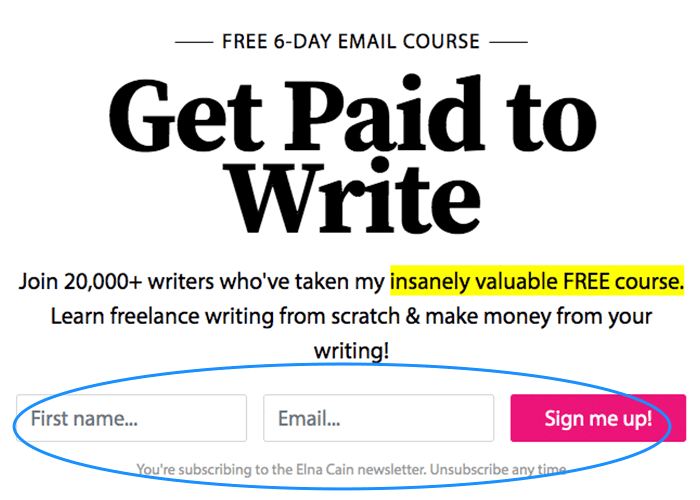
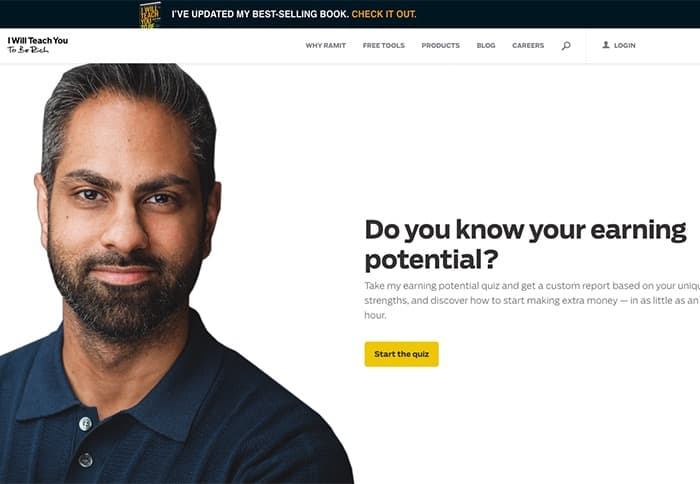
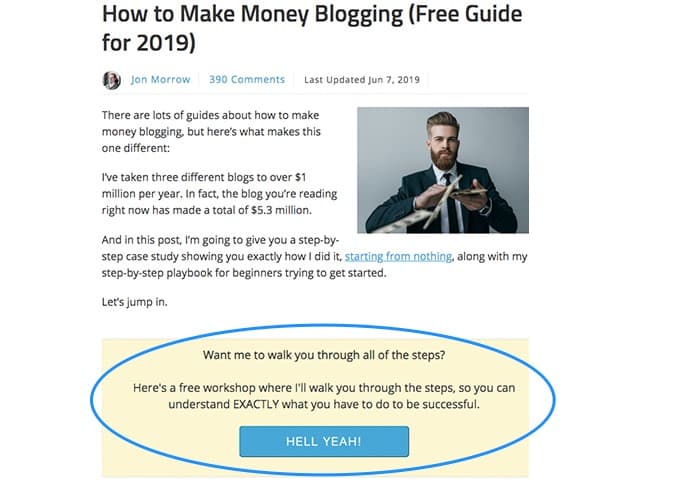
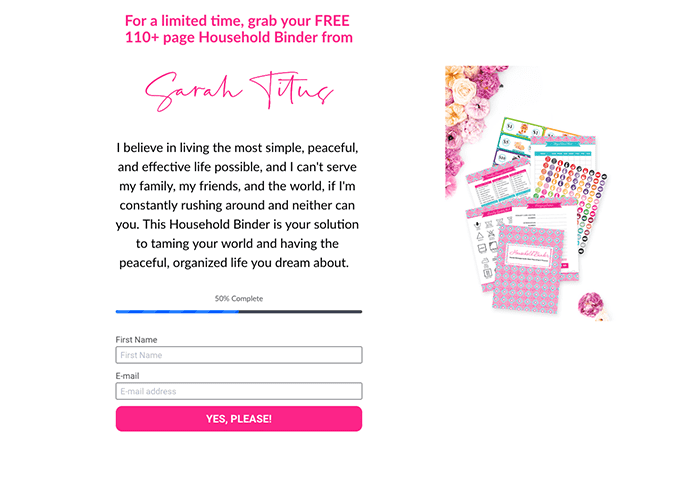
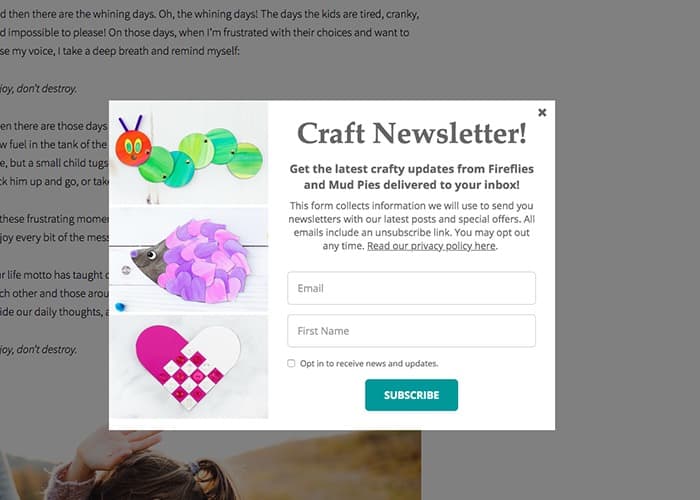
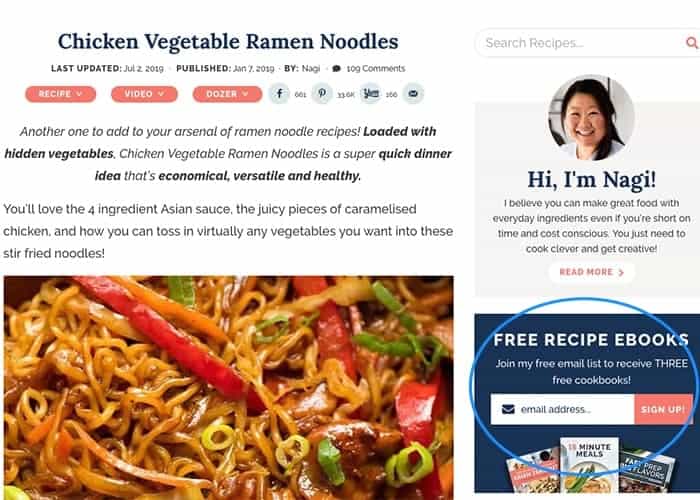
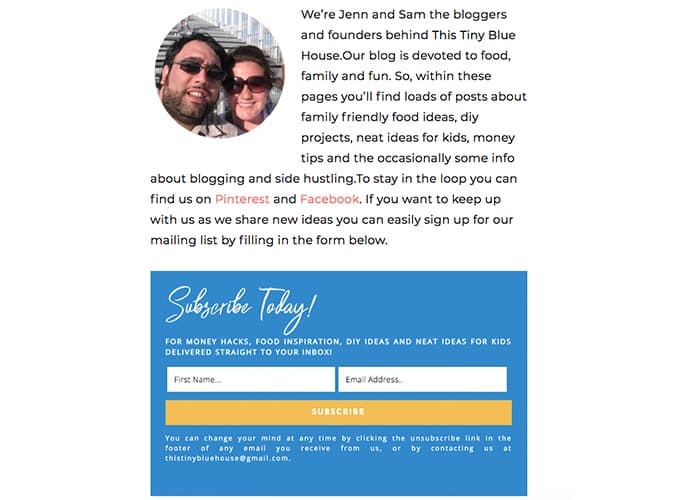
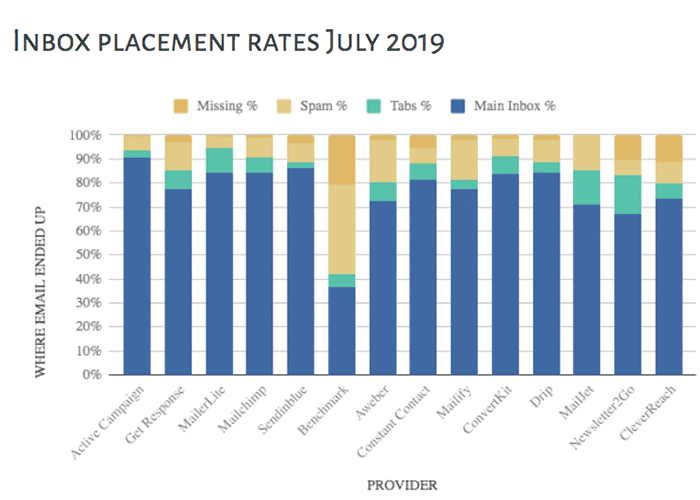
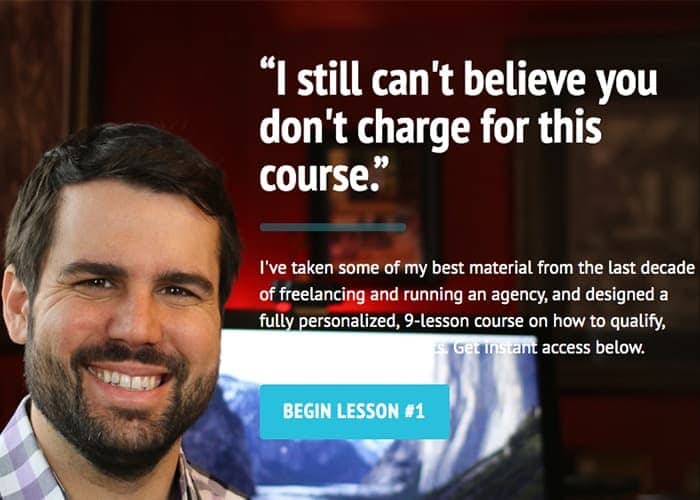
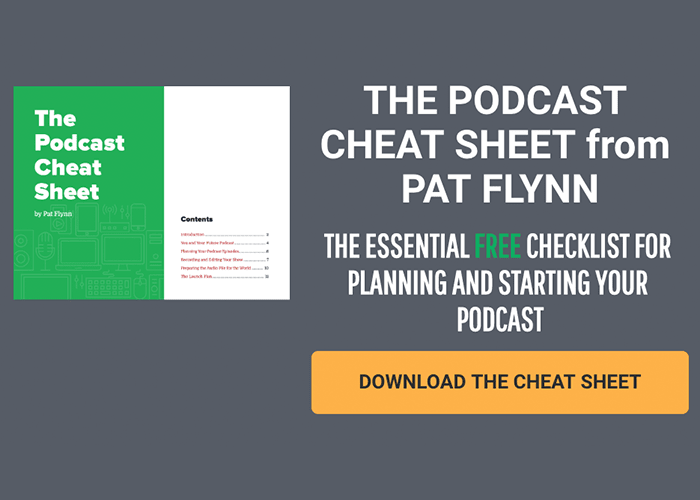
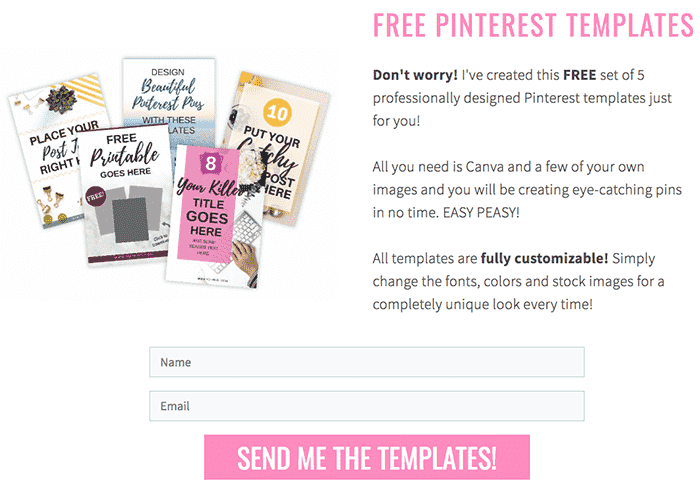
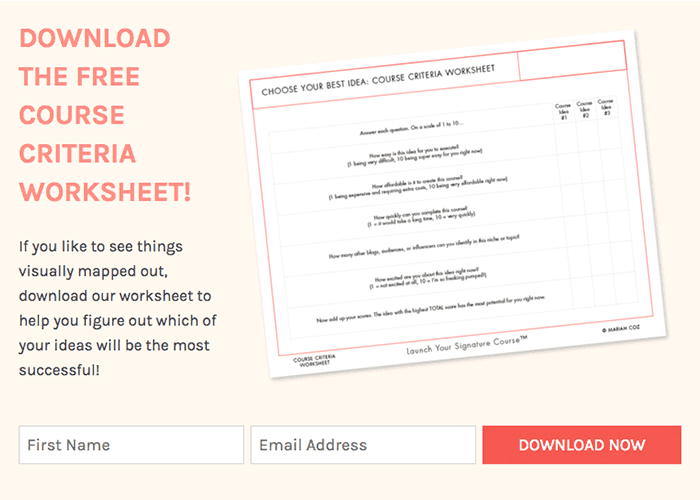
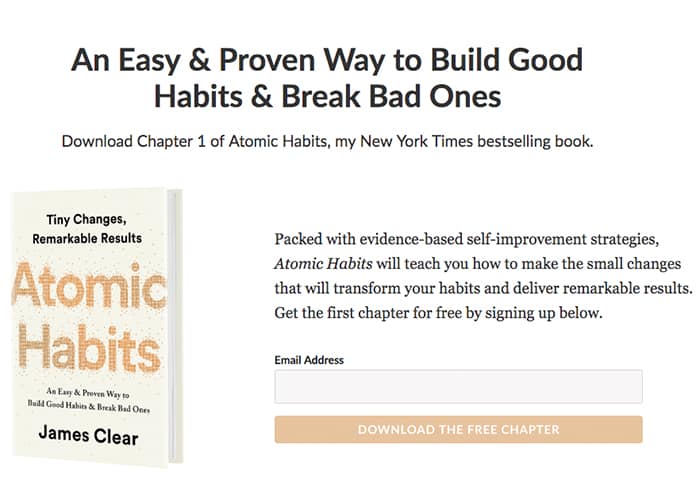
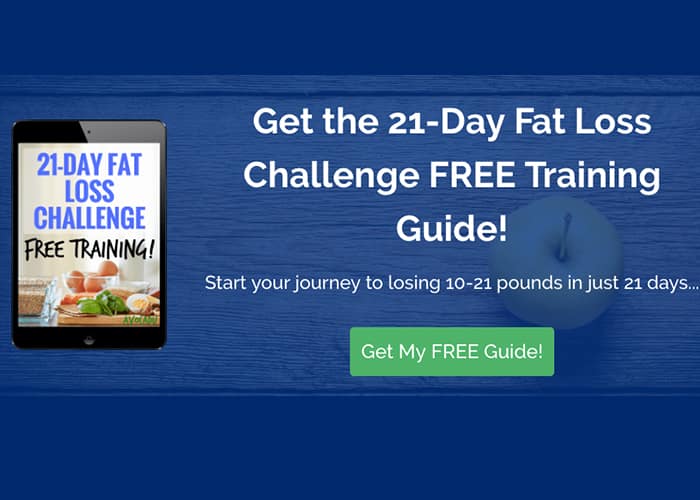
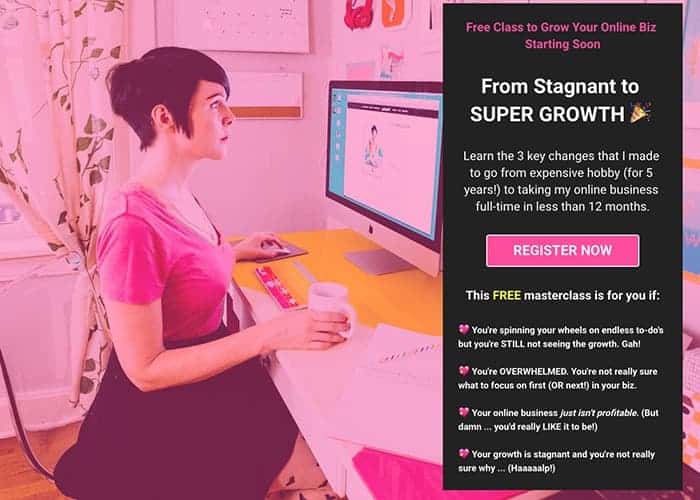
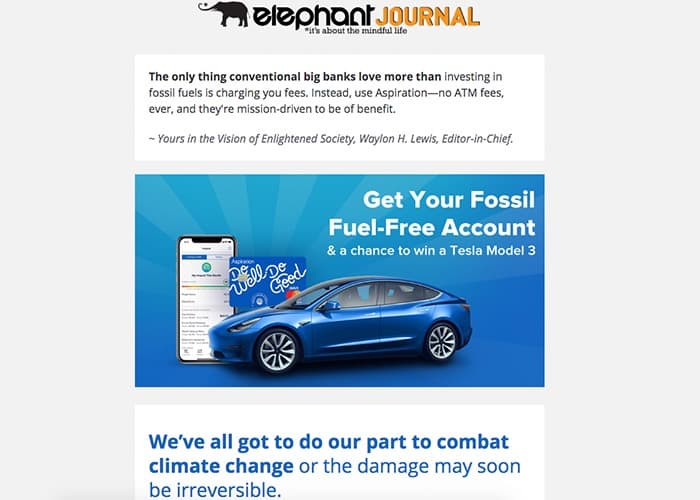
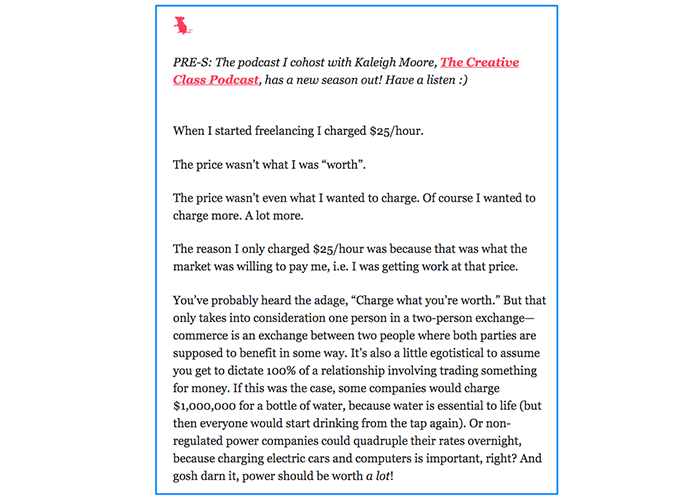
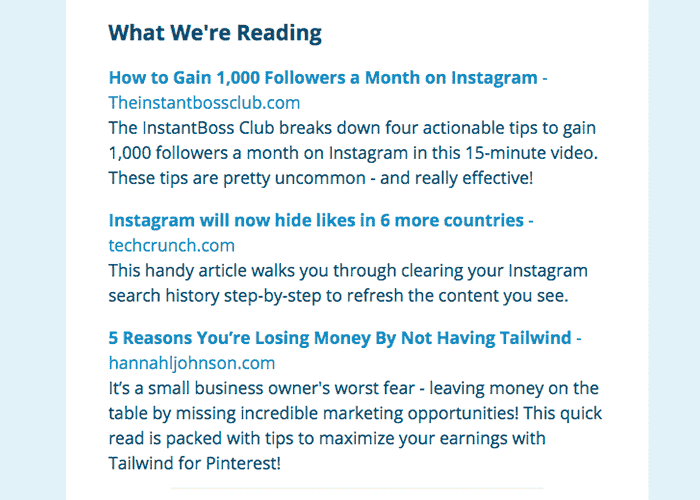
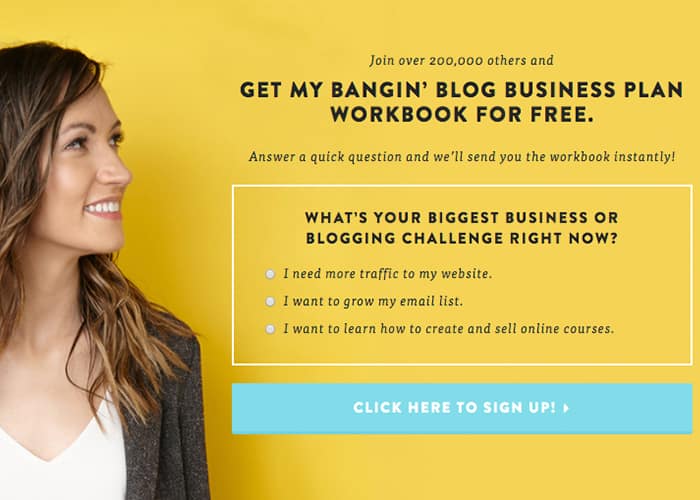
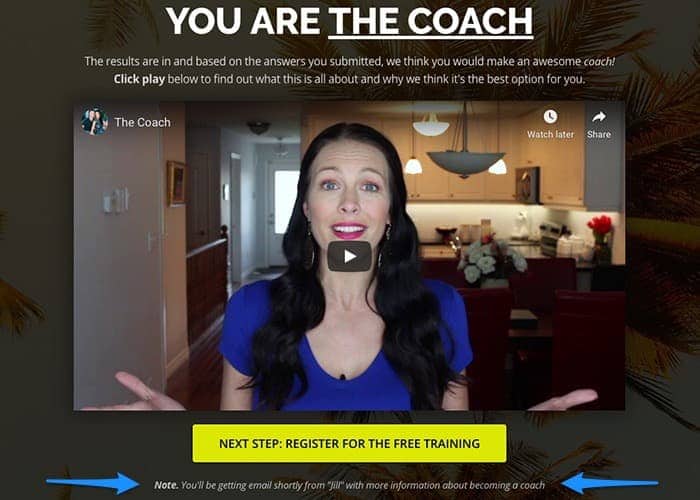
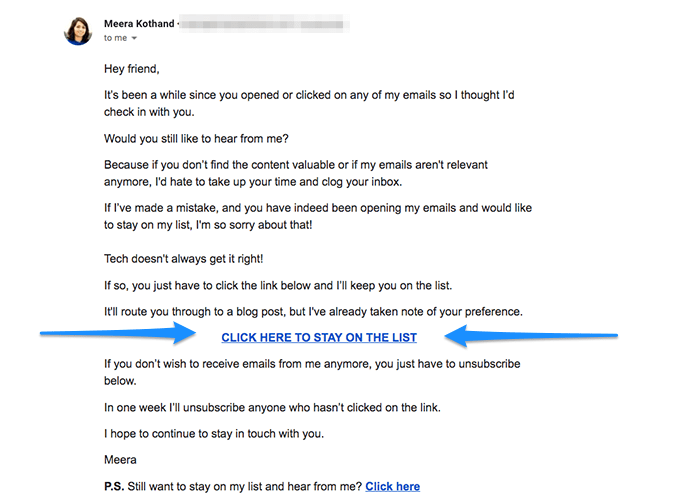
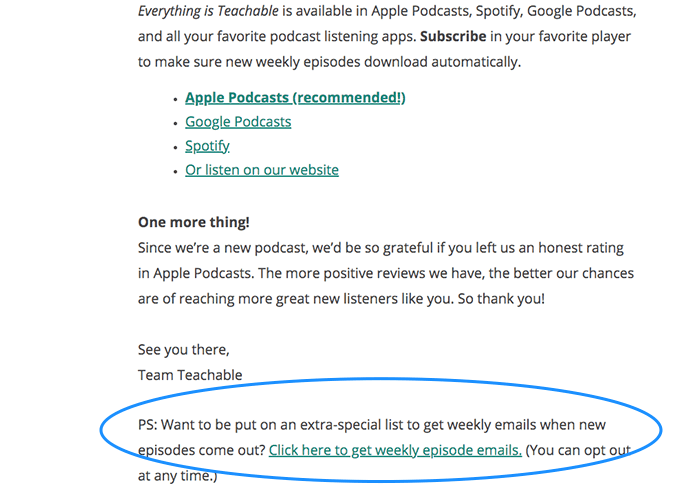
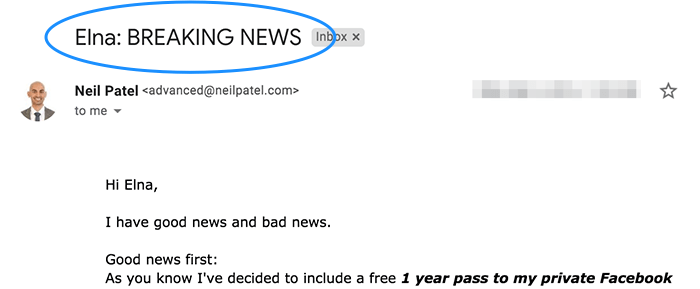
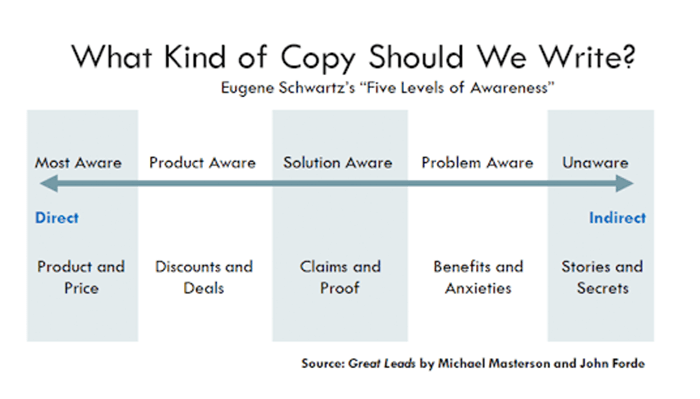
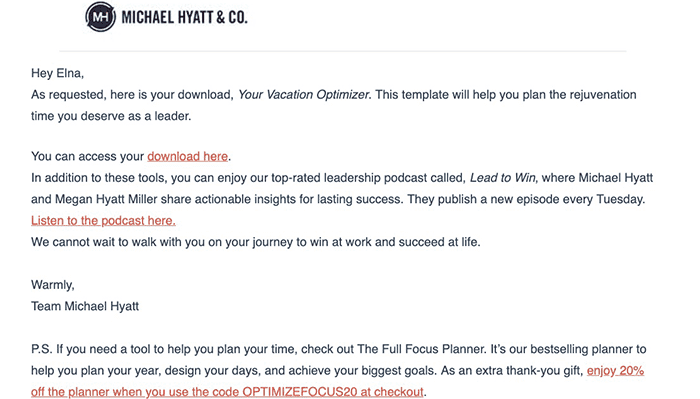
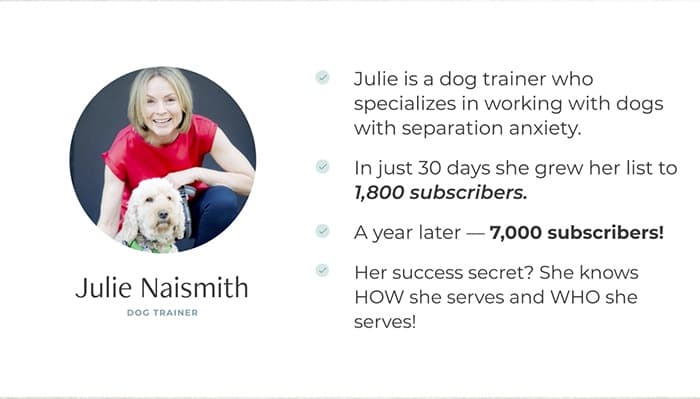
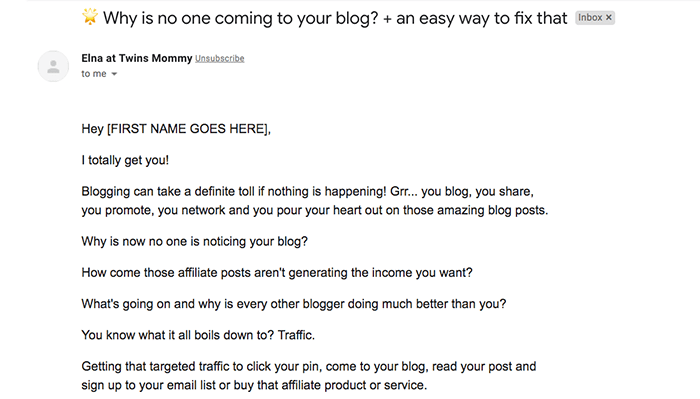
No comments:
Post a Comment